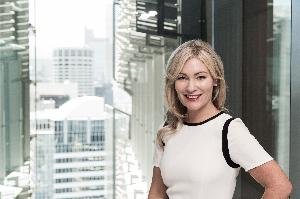Fidelity survey: most Kiwis haven't consulted an adviser
A survey of the public for Fidelity Life found only 22% of New Zealanders had consulted a financial adviser.
Wednesday, August 7th 2024, 3:44PM
by Jenny Ruth

Another 31% of respondents said they didn't see the need for a financial adviser.
About half of respondents thought that a financial adviser would be too expensive, Fidelity's chief commerical officer, Bronwyn Kirwan, told he Wellington session of Financial Advice New Zealand's (FANZ) Connect tour of the country.
The attitude that financial advice is for richer people is also very common.
Many people tend to get their financial advice from family members, friends and acquaintances, rather than from qualified advisers.
Fidelity Life's also found that 18% of those under 35 get their financial information from social media, Kirwan said.
Among those who have sought advice from qualified advisers, for many it's episodic, triggered by major life events such as getting their first mortgage.
“From our research we know there are large numbers of New Zealanders who are either consciously or unconsciously avoiding advice.
That can lead to poor financial decisions and “sleep-walking through their financial life is problematic,” Kirwan said.
About 17% of respondents said they preferred to manage their money themselves without advice and 15% said they didn't have enough money to invest.
Many people thought there's “a magical level of wealth” they would need to have before it would make sense to seek advice.
Nevertheless, 81% of those surveyed thought advice ought to be available to everyone, even though they are choosing sources of advice that may not be optimal.
Kirwan said the survey results add up to “a massive opportunity” for advisers to address and to get financial advice “normalised.”
The industry should be looking to remove some of the behavioural barriers that stop people from seeking professional advice, she said.
These include perceptions that advisers “don't look like me,” that they expect advisers to be “a bit patronising.”
“We need to equip them with better tools and resources and then more will move down the path of seeking out financial advice.”
She suggested one well-known marketing strategy is to target people as they near the end of a decade – such as those turning 29, 39 or 49.
At 29, it's natural for people to get their KiwiSaver position organised while those turning 39 may be thinking about how to protect their incomes.
The life industry also needs to address concerns about affordability, Kirwan said. While some perceptions about affordability are wrong, other are actually correct and that means providers need to adjust their policy structures so they don't present unintended barriers.
| « AIA Wellbeing Study: Hybrid working can increase performance if boundaries are strong | Mixed reviews from advisers on FMA regulation » |
Special Offers
Comments from our readers
No comments yet
Sign In to add your comment
| Printable version | Email to a friend |


